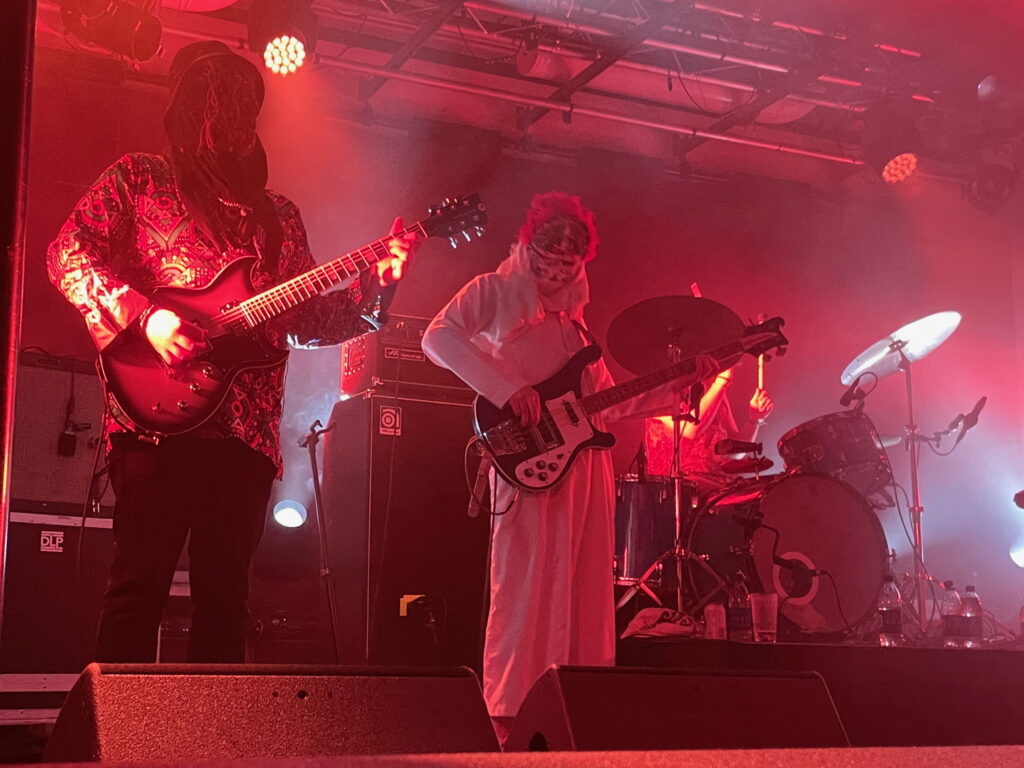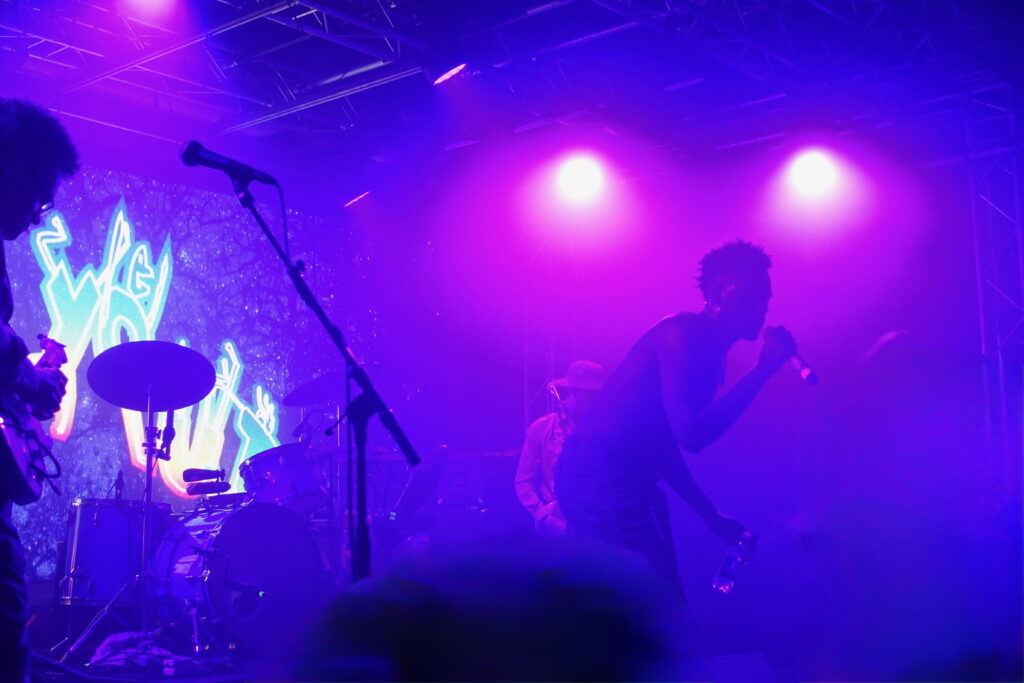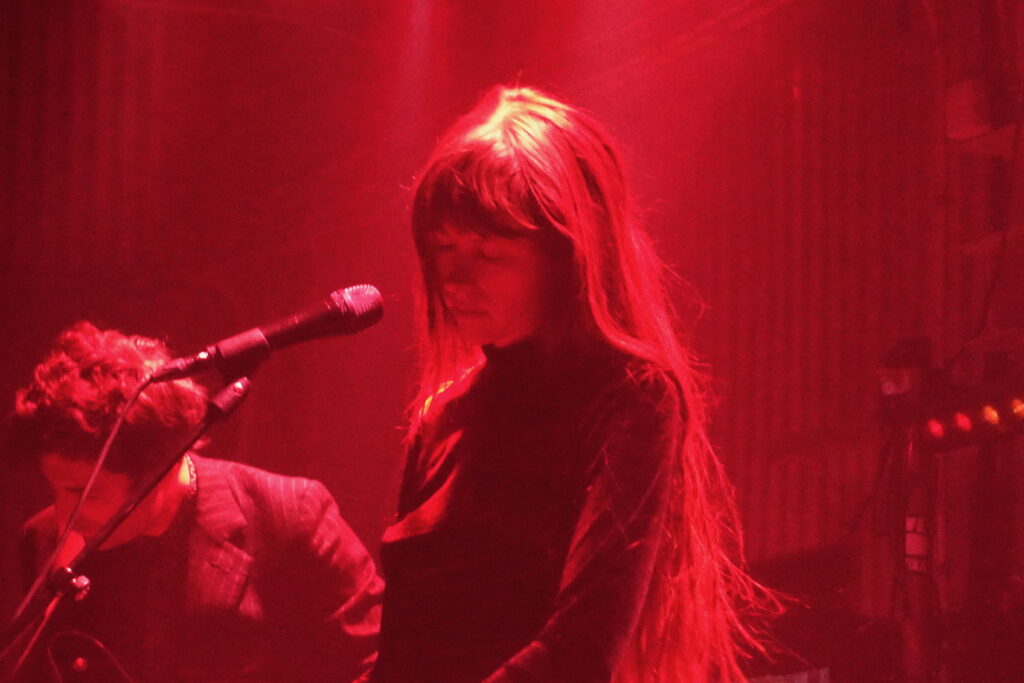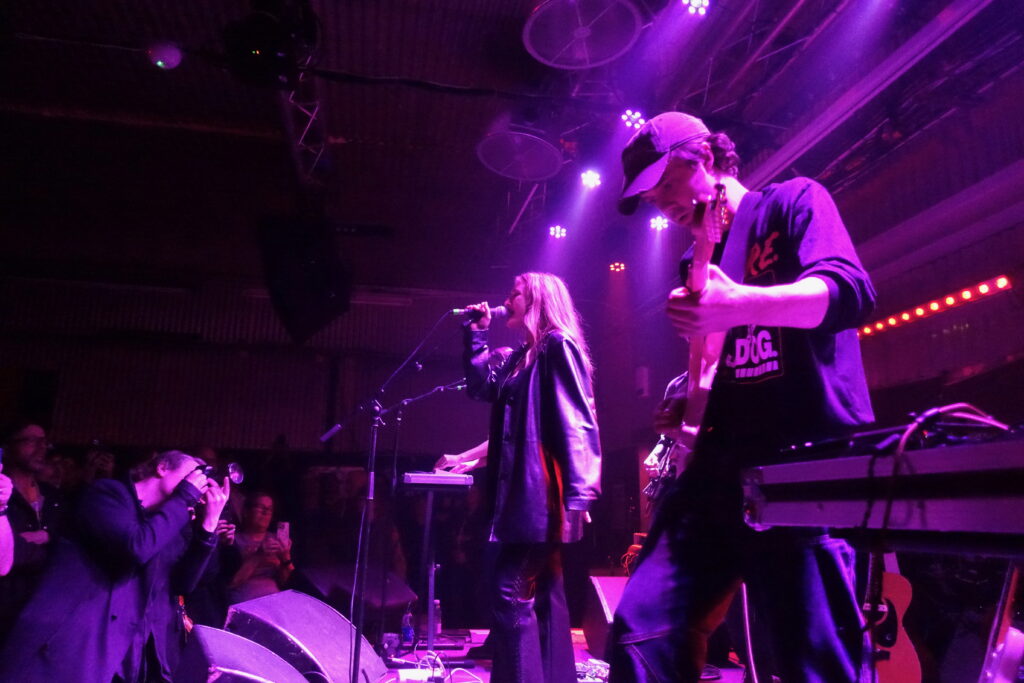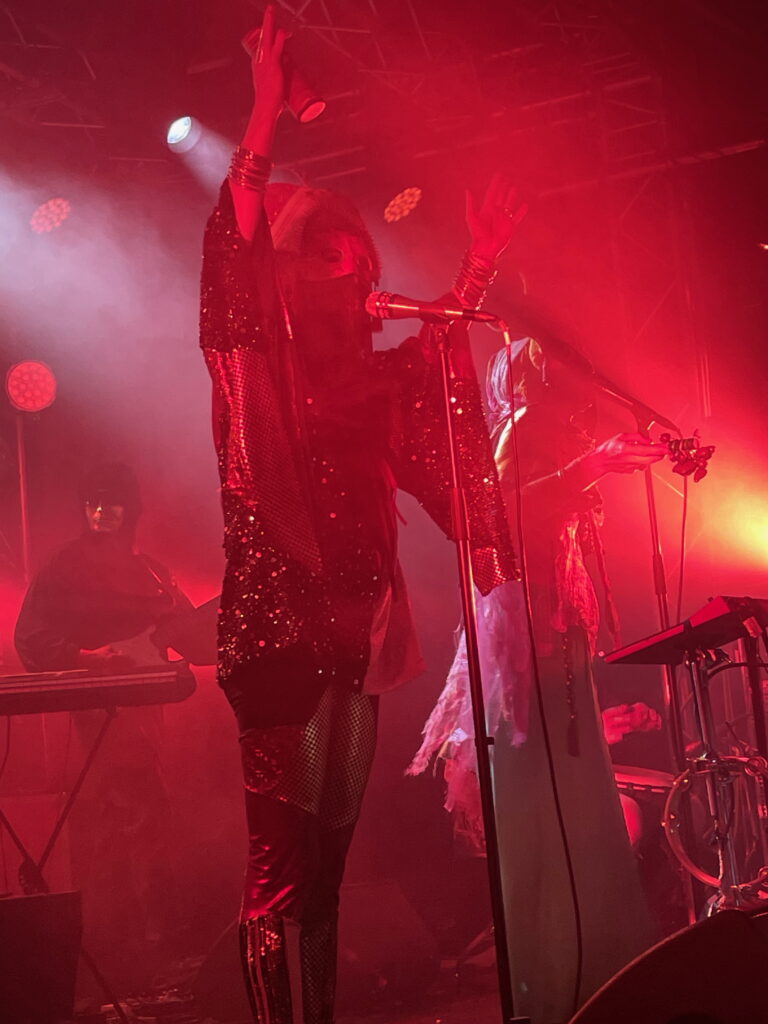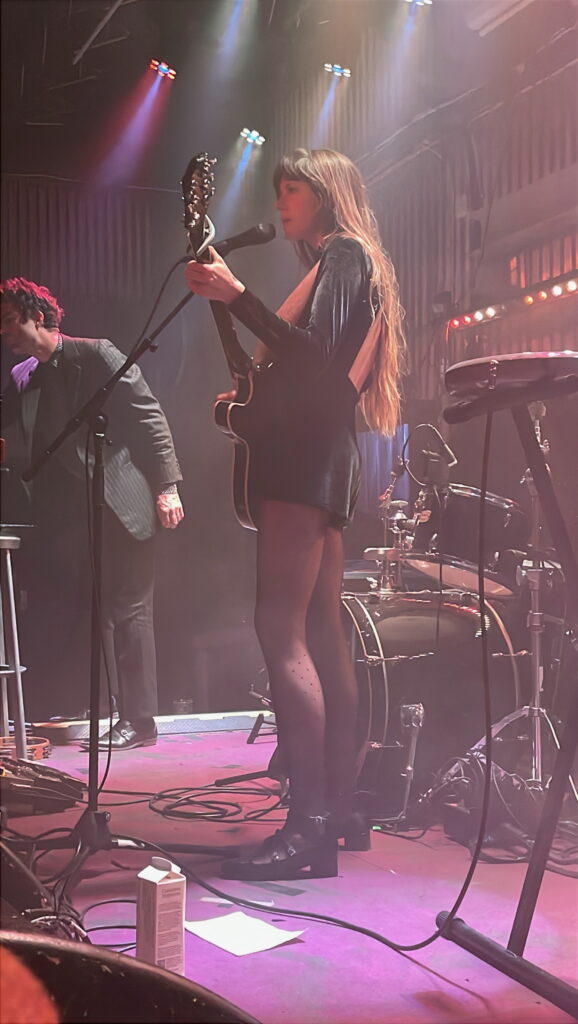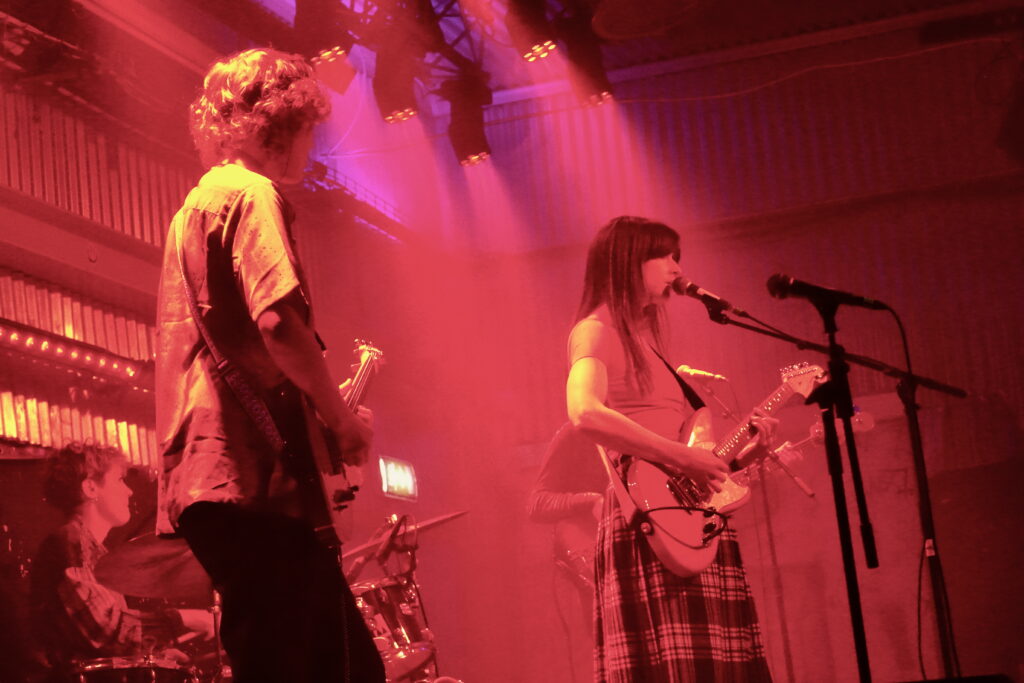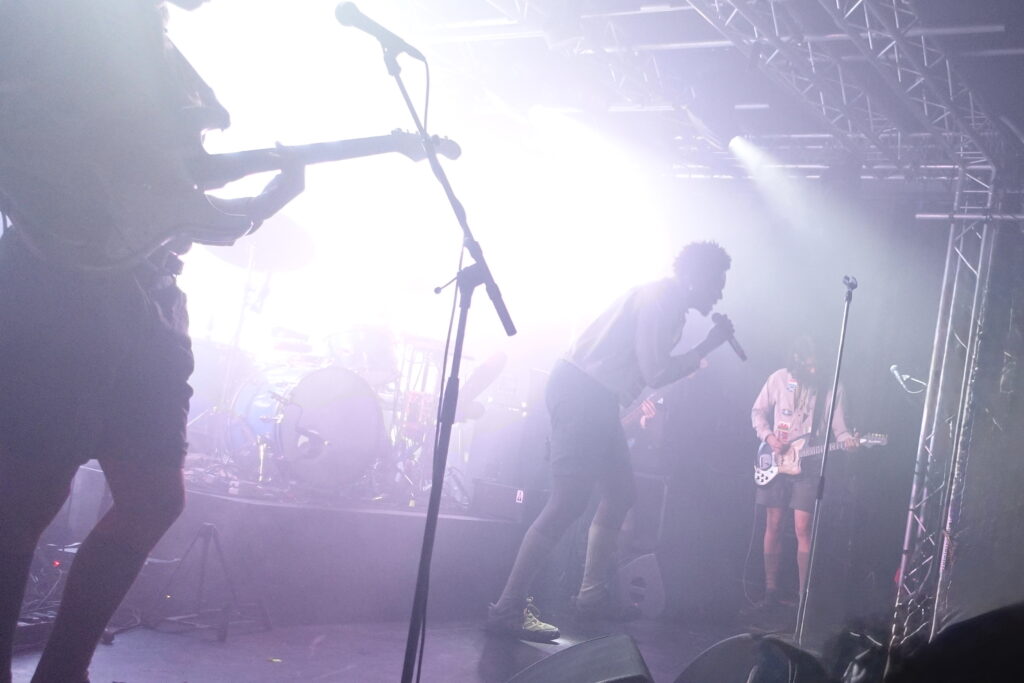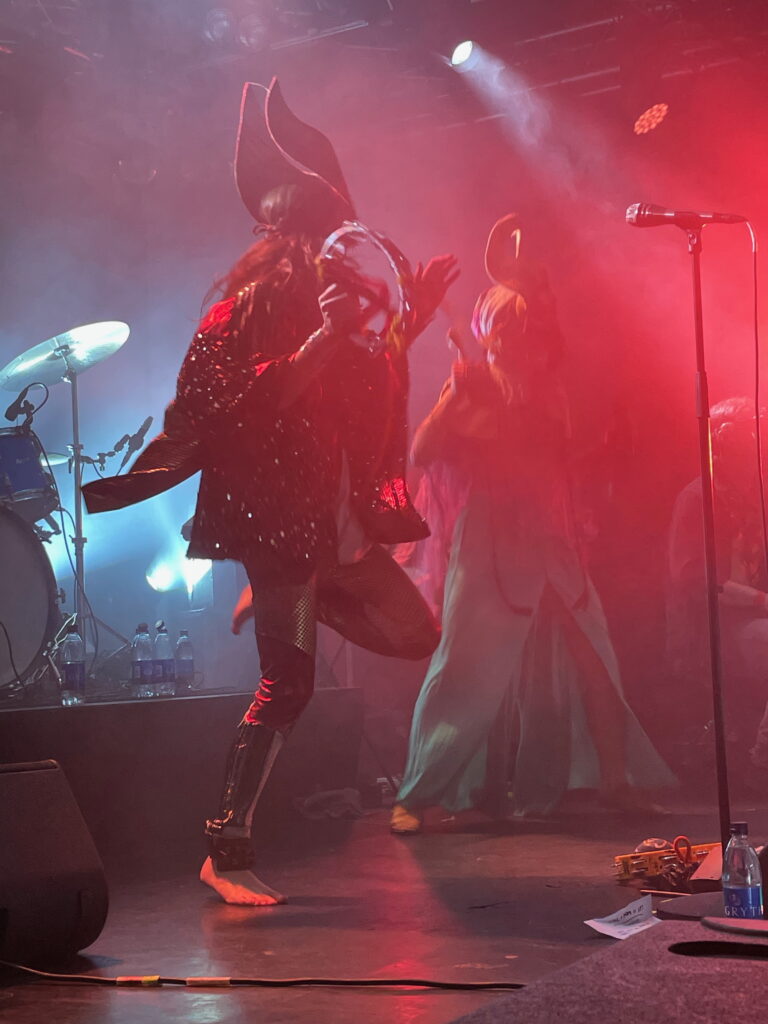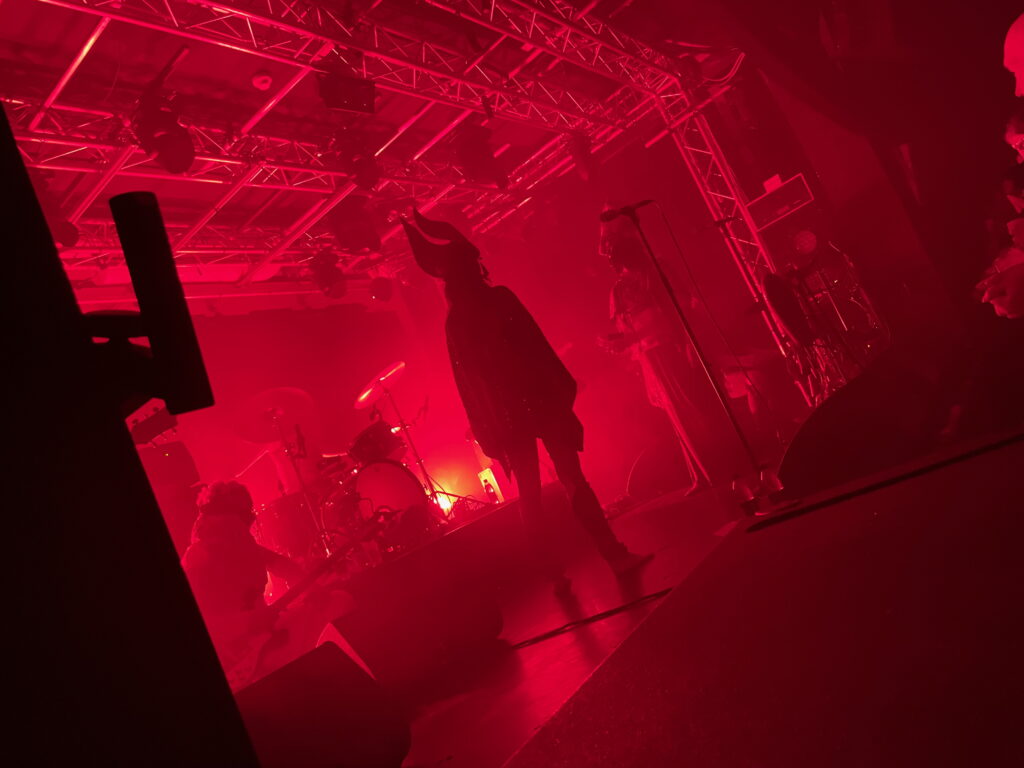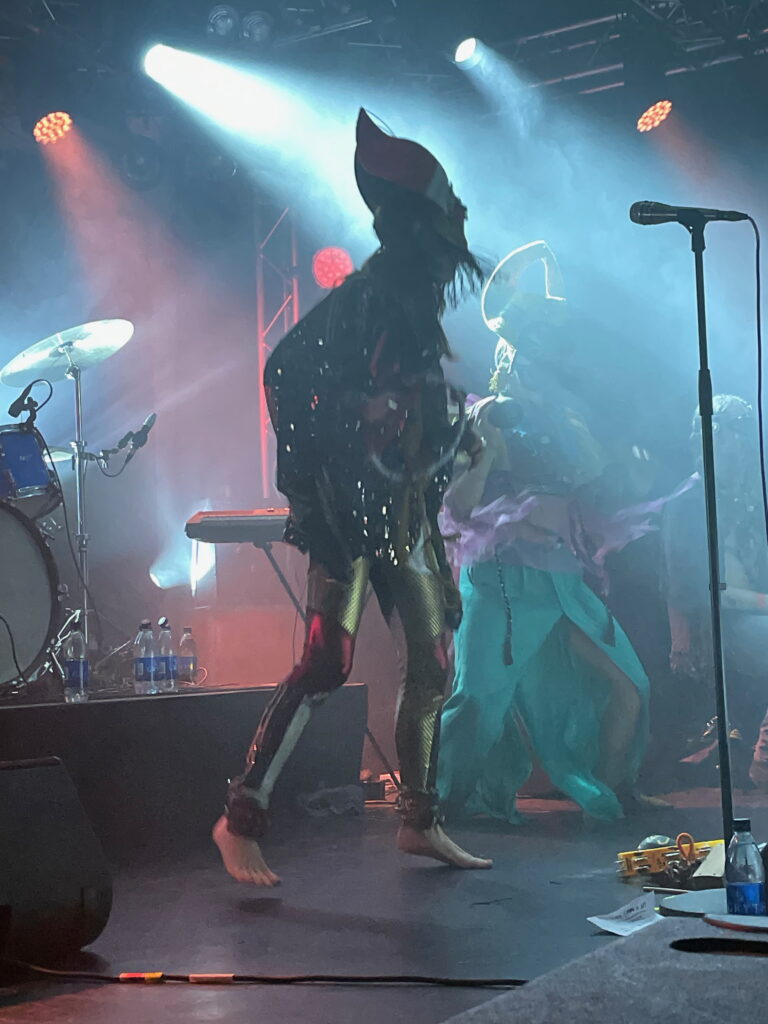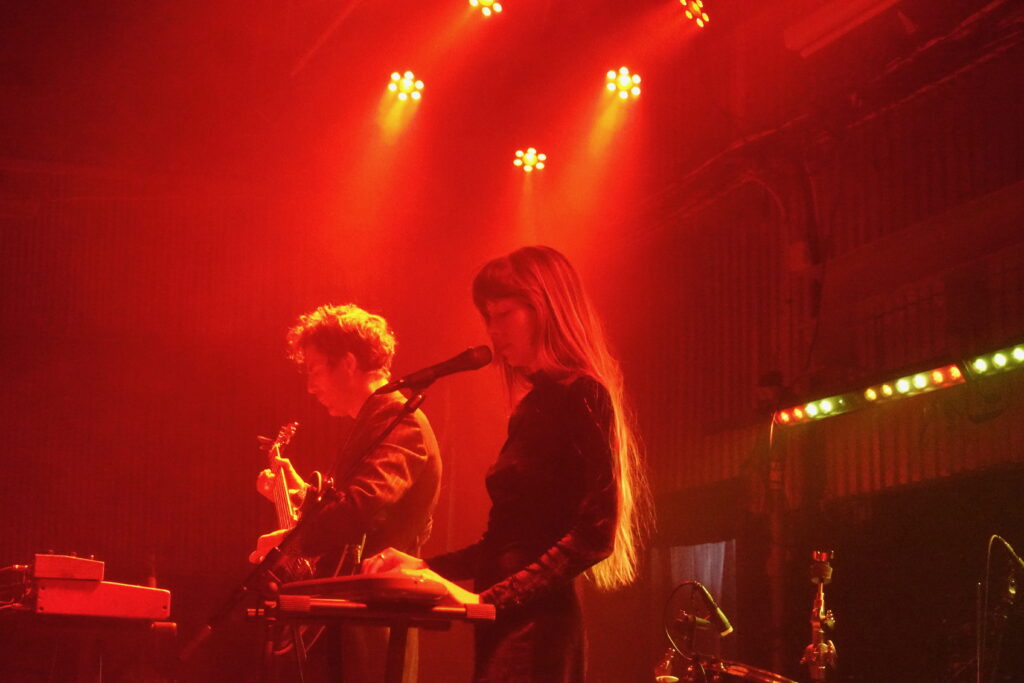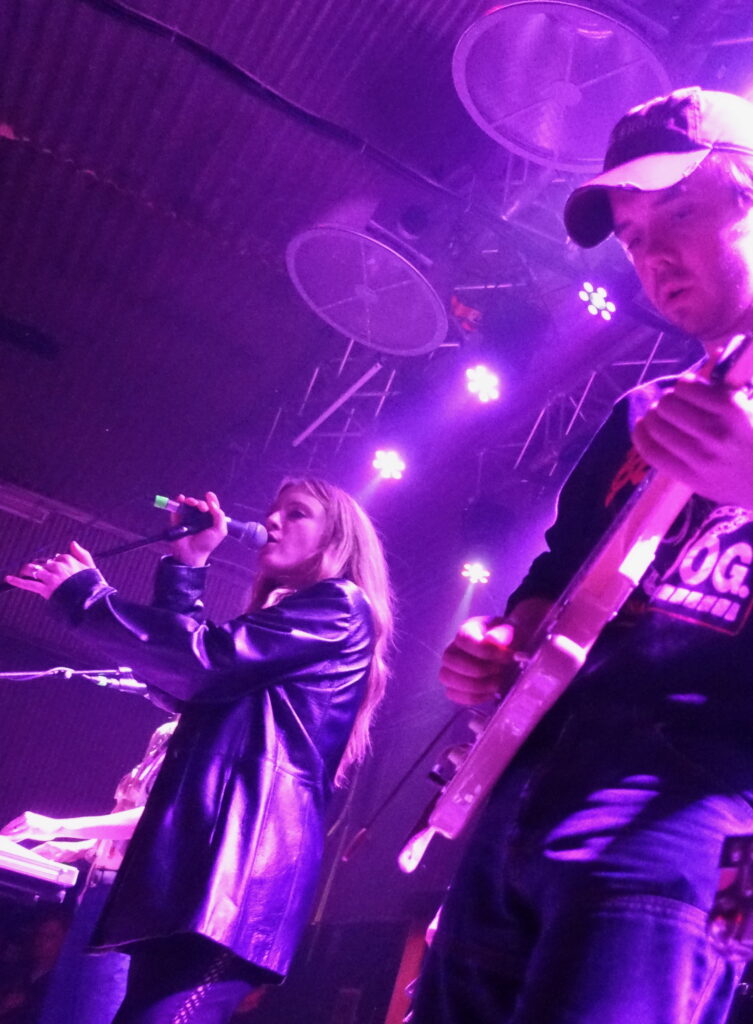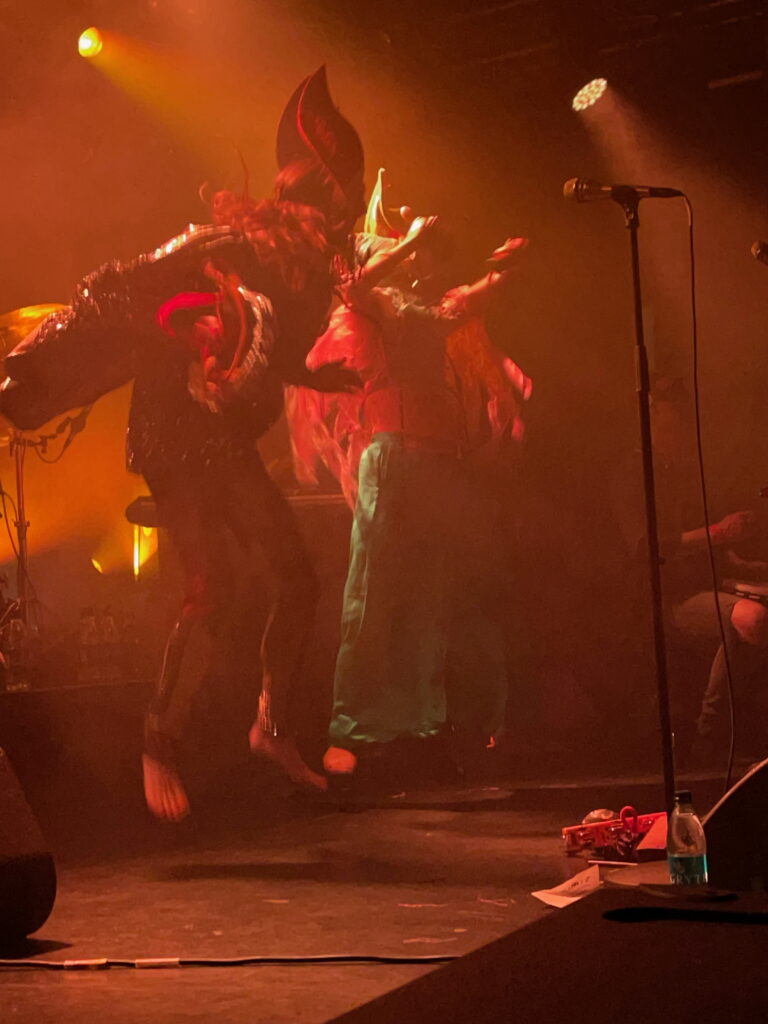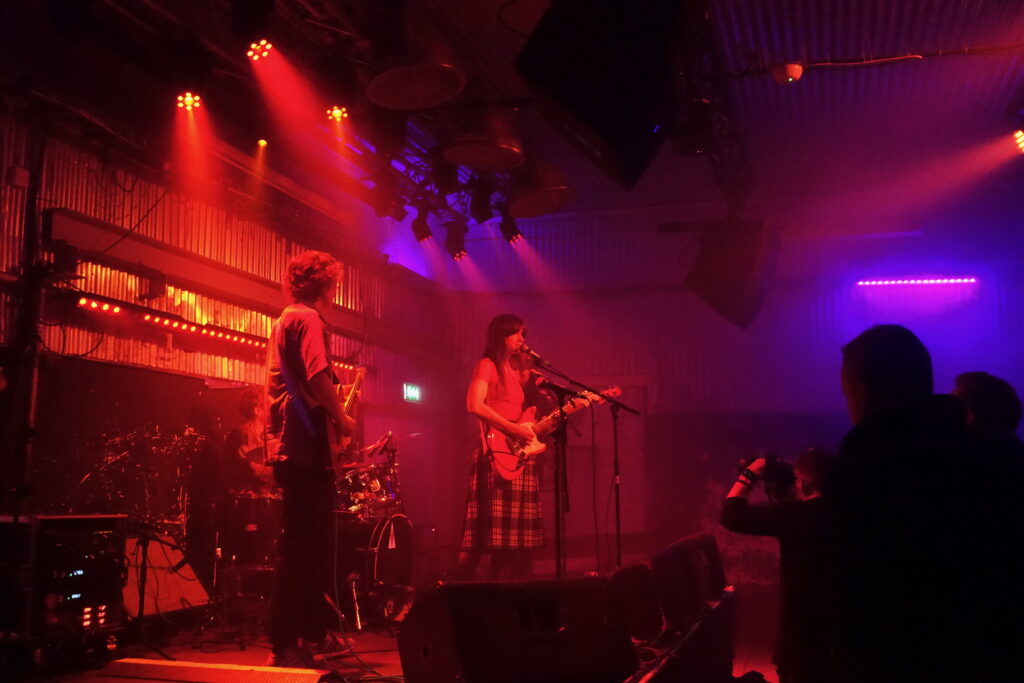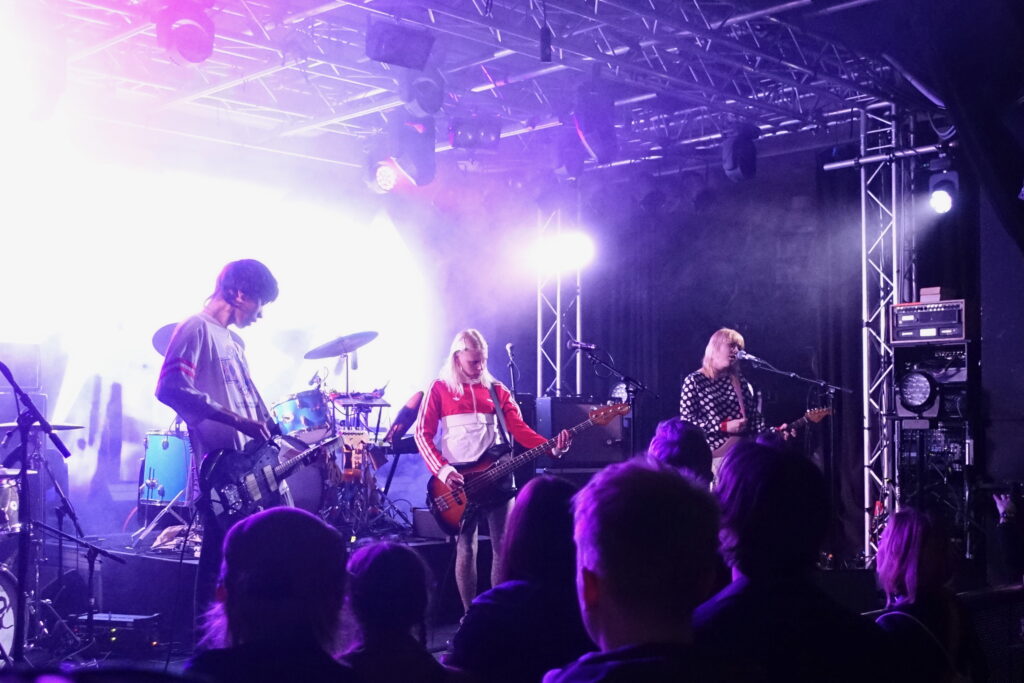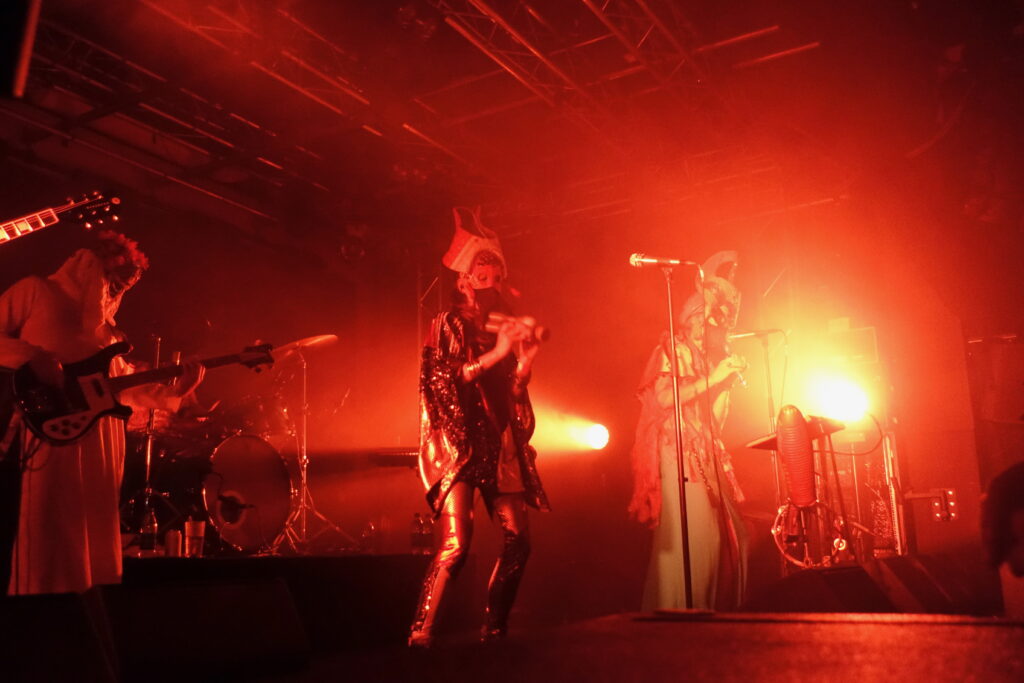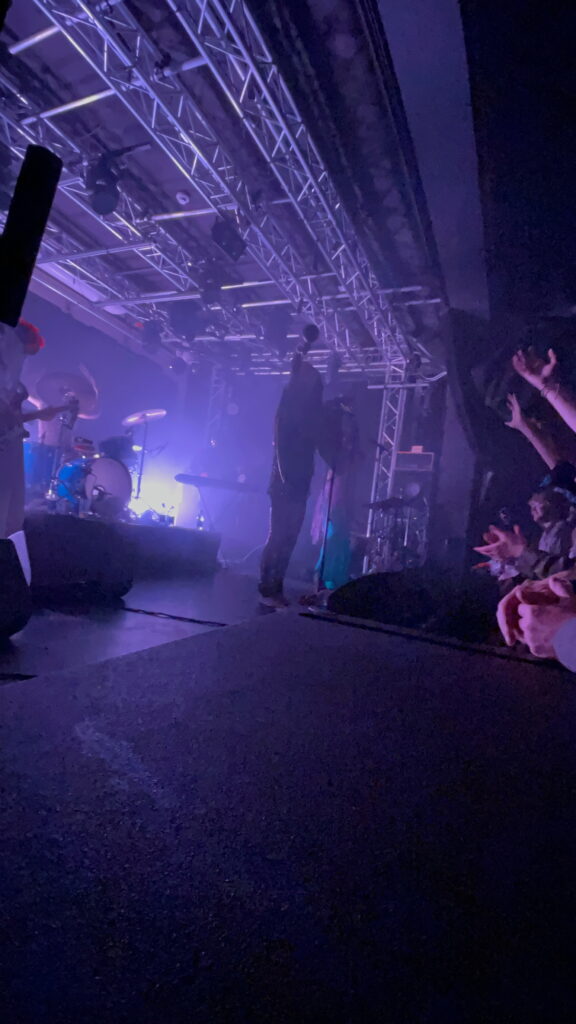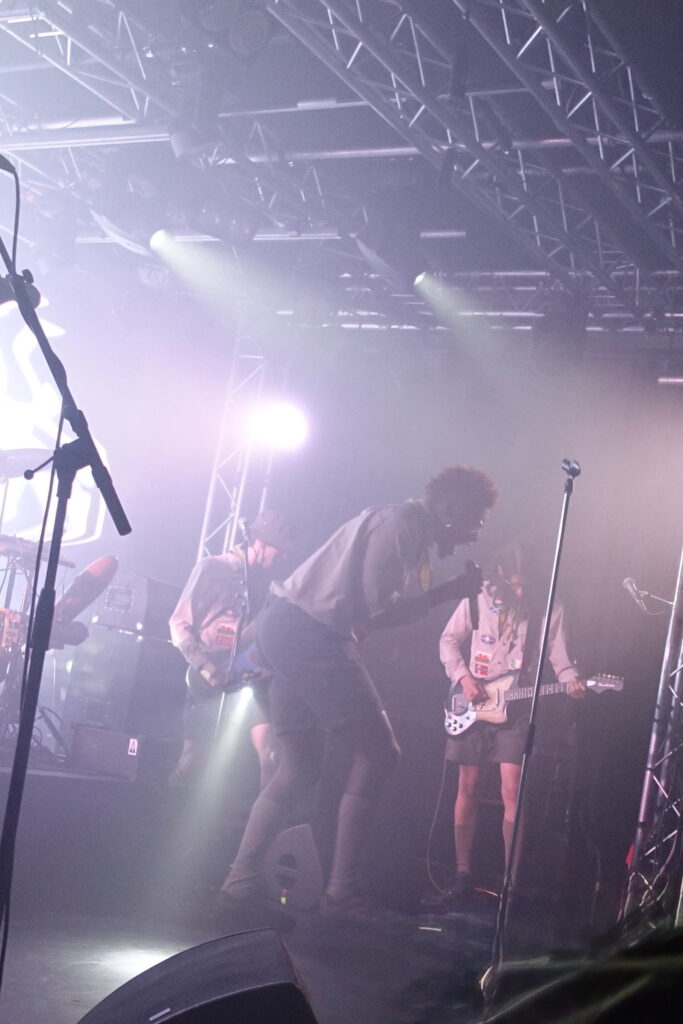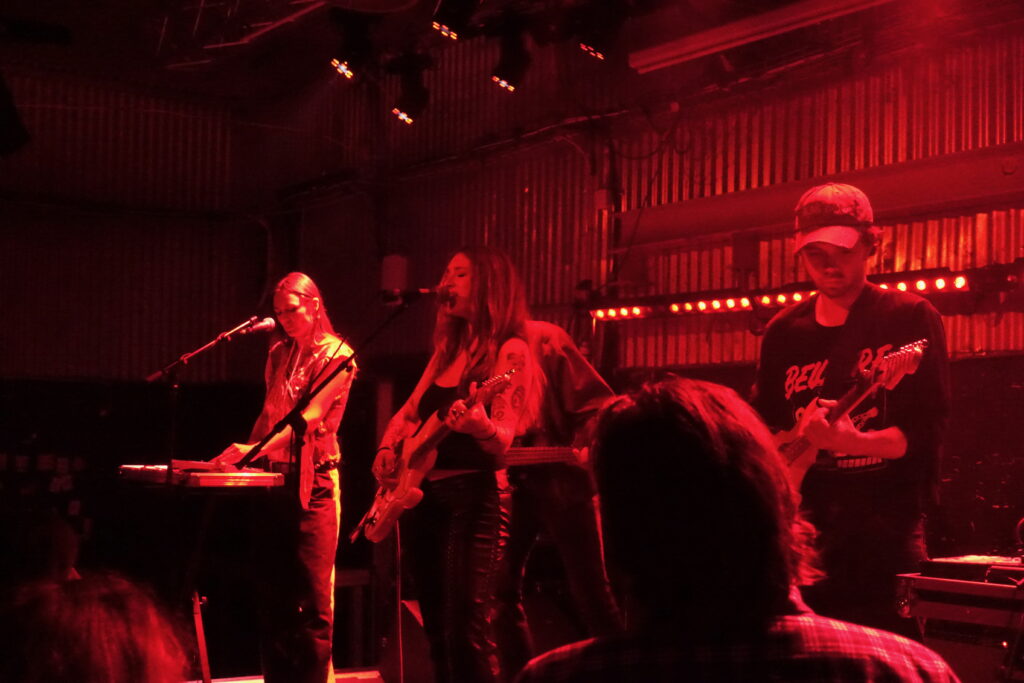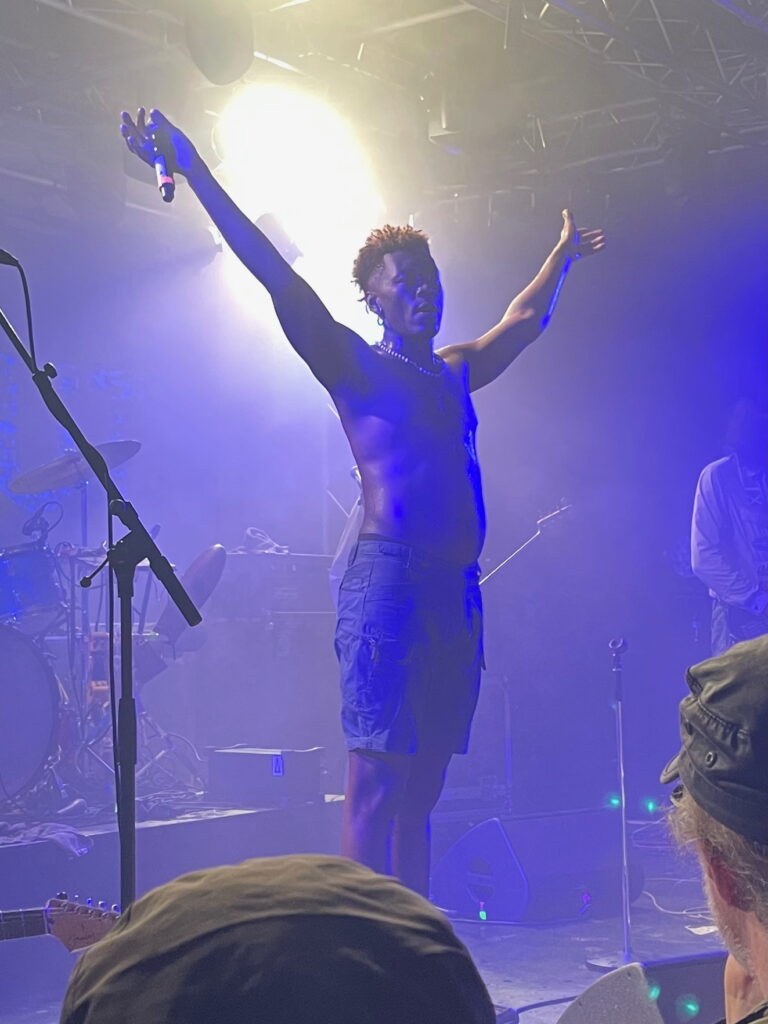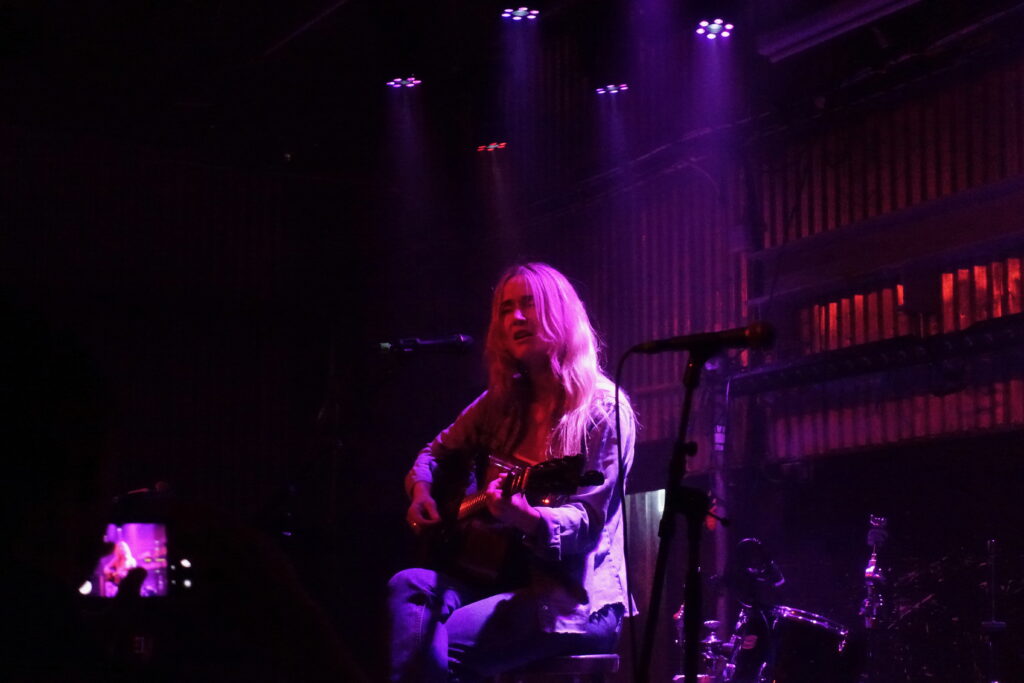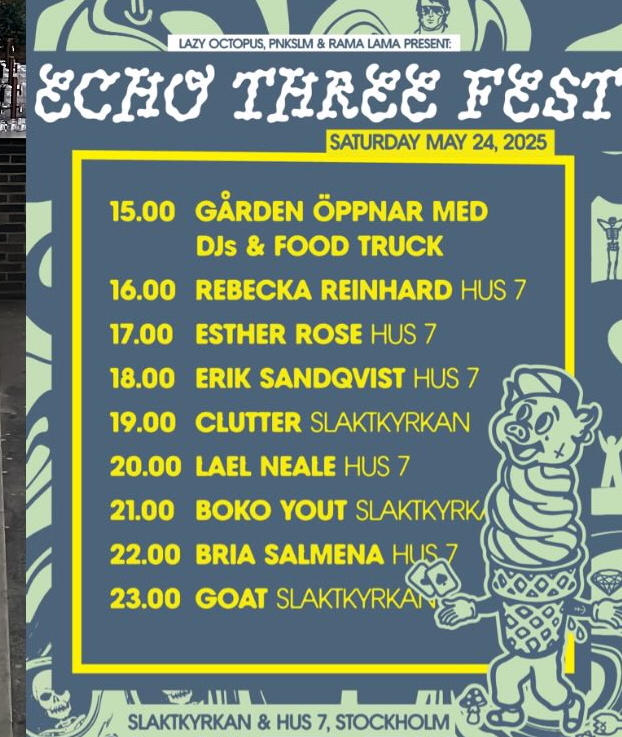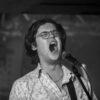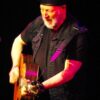When: 24th May
Where: Stockholm, Sweden
Echo Three Fest begins slowly. It’s mid-afternoon, and the unexpected May sunshine has that strangely Scandinavian quality – like it’s been through therapy.
The doors open into the Slakthusområdet — a place that once dealt in meat, now in music. Beneath the concrete and steel bones of Slaktkyrkan and Hus 7, the fourth edition of this compact but beautifully curated Stockholm festival starts to hum. A collaboration between Stockholm’s tireless DIY scene-builders, Echo Three – the people, not the event – are Johan Alm, Axel Franzén, and Luke Reilly, a trio who have presumably foregone sleep and personal gain to make this thing happen. With assistance from beloved indie labels like Rama Lama Records, PNKSLM, and Pygmalion Musik, they’ve built something tender and odd and genuinely heartfelt. Just two venues, one courtyard, and a shared love letter to the underground.
The first act I catch, Rebecka Reinhard, is new to me and there’s already a sense that tonight will turn into something unforgettable. Reinhard’s voice spills out like candle smoke across the red laser lights of across Hus 7. It’s dusky, direct—somewhere between Angel Olsen and a psychedelia-soaked pop with icy edges.
Next, Esther Rose walks on stage alone with a guitar and a grin that disarms the room. Her songs shimmer with southern sun and open-ended yearning. We get favourites and newer material alike, including the luminous ‘Scars,’ where she sings, “Baby, I’ve got scars that you cannot see / Love them for what they gave to me.” It’s bold, plainspoken, and lands like a long-travelled truth. Her newer songs lean into complexity – connection, accountability – while still dancing in the twangy folk-pop lane she’s known for. Midway through the set, she hands a fan a postcard to pass around: a hand-drawn sketch from her new album’s early life. She closes with lead track ‘Want’ a wry, list-like track where she recounts 33 things she longs for, because—she says—she’s 33 now. The sound guy lets her run over. No one complains.
After her set, I slip out to the food trucks. The falafel queue moves at glacial pace. To my surprise, Esther’s just a few people behind me, smiling, arms crossed against the early evening Stockholm chill. We chat briefly—nothing profound. She is entirely as kind and understated as her music suggests. I consider telling her this and then don’t. That easy, open presence continues throughout the night as artists drift between the courtyard and the merch tables with an easy kind of grace. No barriers, no velvet ropes, no unearned mystique. It’s a bit like a village fête, run by your favourite record labels.
I miss most of Erik Sandqvist while I wrestle with a chicken shawarma wrap, catching just the back end of his set. What I do hear glows with a melancholic warmth – soft jazz edges and hazy sax, with cinematic Scandinavian gravity. It feels like watching the credits of a very slow Nordic coming-of-age film, which is to say: perfect, and mildly devastating.
First on in Slaktkyrkan, Clutter explode onto the stage like a malfunctioning alarm system, a smidge of Sonic Youth, but mostly haunted air-vent and shouting. Bassist/vocalist Hilda Ander routinely stares down the crowd with the kind of intense focus you can feel in your molars. Their 25-minute set is over before you can adjust, and leaves this odd sense that something got broken in the process.
Under the subdued red haze of Hus 7, Lael Neale follows, and suddenly everything softens. She takes the stage with Guy Blakeslee at her side, coaxing loops and guitar textures while Neale moves between autoharp, synth, and microphone. Her voice cuts through the hush like it’s been waiting for a moment exactly like this, the crowd leans in. She covers her last two records – Star Eaters Delight and Acquainted with Night – with ‘I Am the River’ unfurling like a hymn for forgotten places, ‘Down on the Freeway’ pounding gently with strange urgency, and ‘All Good Things Come to Pass’ a slow-motion revelation to the delight of the whole room.
Then comes Boko Yout, and we are moved physically and emotionally to a different place.
They arrive like a wave of positive intent —sharp, joyous, militant. Clad in scout uniforms stitched with international badges (accumulated from their recent tour), they radiate purpose. The crowd, fully charged, roars back in recognition. Boko Yout, aka Paul Adamah, is a compelling presence, at times weaving through the audience, then arms wide, shimmying across the stage raining sweat down on those below. “This is a work out” he says, stripping down to his skin mid song to the whoops of a very enthusiastic woman holding a fan, bouncing next to me. In their own styled ‘Afro Grunge’ Boko Yout sings about individuality, queerness, taking pride in yourself and just being good to others. It’s sweaty, chaotic, and affirming. When they close with ‘Ignored’ — a queer anthem already canon to many here— Adamah adds a twist: he might not graduate art school, he says, because he keeps choosing this instead. The crowd boos with full-throated support for this amazing emerging artist.
For the last set at Hus 7, Bria Salmena (The FRIGS‘ vocalist) steps into a slower, smouldering space by comparison. Her songs from Big Dog are emotionally rich, textured, and perfectly executed. It’s an unenviable slot in the running order, and the room starts thinning a little as people shift back toward the other stage in anticipation of the headliner. Still, for those who remain, Salmena’s voice is a balm. Less spectacle, more ceremony. I make a note to check out the album.
And then, at last, Goat.
They appear like a hallucination, all masks and bells and feathered shadows. The lights flare, the drums begin, and suddenly we’re in the middle of a ritual we didn’t realise we signed up for. ‘One More Death’ kicks things off with enough bass to rearrange your organs. I’m at the front, close enough to see the sweat behind the masks. When the twin vocalists climb the speaker stacks and shake tambourines like weapons, it feels simultaneously ancient and oddly reassuring. Like a good exorcism.
The set doesn’t really ebb or flow—it just continues, with intensity and purpose, as if being channelled. The seated percussionist right of stage drives things forward with the fastest bongo hands I’ve seen, steering the songs like a runaway train; psych guitars twist through cosmic scales; lights strobe highlighting the multicolour headdresses. I’ve been waiting to see Goat live for years, and as I listen to ‘Ouroboros’, ‘Under No Nation’ and ‘Do The Dance’, I wonder how I’ll go back to just listening to them. God knows what anyone on psychedelics is experiencing—I’ve had a few pints of Omnipollo’s hat and still feel half-possessed. At one point someone spills a drink near the monitors and there’s a minor slip, but it feels entirely in character. Even the mistakes here are choreographed by the gods of noise.
By the time Goat leaves the stage, everyone is grinning, slightly deaf, and unsure whether they’ve seen a gig or joined a cult.
It’s midnight as I leave through the same corridor I entered, past the courtyard still buzzing with chatter, artists still selling T-shirts, records, and caps. There’s a short, safe walk to the Globen metro and a quick ride back to central Stockholm – if only other events could be so easy. I’m left reflecting on the rare sense of connection it managed to spark. The sense that intimacy and impact aren’t opposites and good music can speak just to you, even when you’re part of a crowd.
Yes, it’s a long way to go just for a one-day festival. But Echo Three Fest, for all its brevity, feels like it belongs to everyone who turns up.
And I’ll be turning up again next year.
